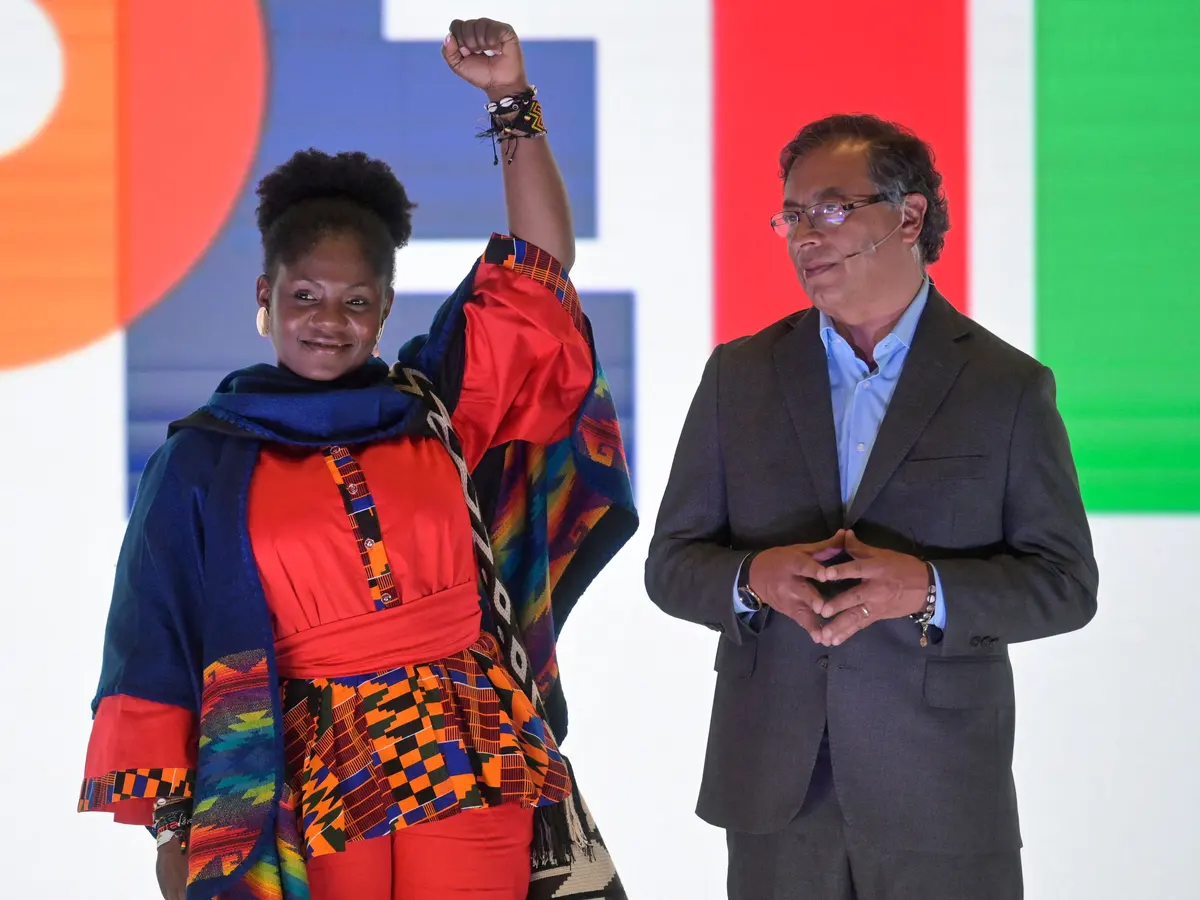By: Vivian She
Esteban Sinisterra Paz, a 23-year-old university student with no formal training in fashion, sparked an Afro-Colombian fashion explosion when he designed the wardrobe of Francia Márquez, Colombia’s first Black vice president.
His goal is the “decolonization of the human being,” and to show the world an expansive view of “the elegance of identity.”
Márquez is an environmental activist, lawyer and is emerging as a voice for millions of poor, Black, and indigenous Colombians, having come from an impoverished background herself.
Márquez is overturning Colombia’s political aesthetic, turning down formal shirts and suits and embracing an Afro-Colombian look that she calls “a look of rebellion.” Some signature styles in this fashion movement include brightly patterned fabrics, called wax, that are famous for telling stories and sending messages through their pictures and designs. Afro-Colombian styles are often connected with nature and can incorporate beaded jewelry and woven bags from Colombia’s indigenous communities.
In Colombia, 40 percent of households live on less than $100 a month, and Afro-Colombians are among the poorest groups. The areas where they predominate have been neglected by many generations of politicians.
“Colonization tried to erase Black people,” said Lia Samantha Lozano, who is the first Black woman with a runway show at Colombiamoda, the country’s biggest fashion event. “A big part of the plan was to make us feel ashamed of who we are, of our colors, of our culture, of our features. To wear this every day, not as ‘fashion,’ not to dress up for a special occasion, but as a way of life, as something you want to communicate every day — yes, it is political. And, yes, it is a symbol of resistance.”
As the center of the Afro-Colombian fashion boom, Sinisterra says that he now feels like a part of Márquez’s promises of reform in a country that has endured decades of injustice and discrimination.
“The responsibility is going to grow,” he said. “My responsibility, Francia’s responsibility, backing this process so that the people — our people — don’t feel betrayed.”
Link to article:











